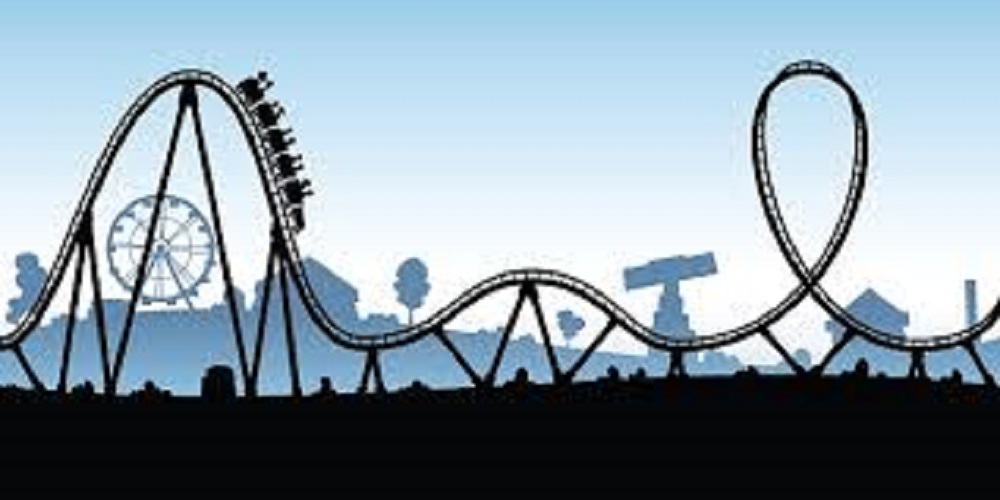While visiting Imagica, the flagship theme-park of Adlabs Entertainment Ltd. (‘AEL’) is always entertaining, however, looking at its annual reports and presentations over the last couple of years has been far from entertaining – at least from a shareholder’s perspective.
Their shareholders were taken for a ride – incidentally, the ride only went down!!
While the company came out with its first public offering in 2015 and raised INR 2.76 billion. From an offer price of INR 168 and INR 180 per share to the retail and institutional investors respectively, price as on May 10, 2019 stands at INR 8.15. Yes, that’s right!! A decline of 95% since the company first raised money.
It was deemed to fail right from the very beginning, at least from a shareholder’s perspective. Well, it’s easy to say now. After all, as Warren Buffett has often said “In the business world, the rear-view mirror is always clearer than the windshield”
Let’s go back in history to try and understand why it was never a good idea to invest as a shareholder.
# High Debt: As per the Red Herring Prospectus, the company had consolidated long-term debt of INR 12.04 billion as on September 30, 2014. The company was slated to make a debt repayment. In 2016, however, long-term debt continued to remain at INR 958 million. Fast forward 2018, debt continues to remain at ₹ 891 million.
With such a high level of debt, the company was required to generate cash at least to cover its interest expenses. Despite the IPO proceeds and repayment of partial amount of debt, the company was never able to increase its revenue and/or reduce its costs to become profitable. The company continues to incur losses since FY2013 and incurred a loss of ₹1.56 billion in FY2018 again.
# Cost Base: The company’s business involves a high fixed cost-base. A large portion of its expenses are relatively fixed because the cost of operations of the parks, salaries of employees, operations and maintenance costs, power costs, security and insurance do not vary significantly with attendance – they are kind of fixed. This was reiterated by the company’s presentation in May 2018 wherein it stated that more than 80% of its current costs are fixed in nature. This by the way, does not include interest expenses. Add interest expenses to such a high fixed cost, the company’s performance is nothing to speak about. By the way, What about principal repayment?
# Discretionary nature of spending: A high debt and a high cost base company coupled with discretionary spending by its customers is a recipe for disaster. This is what has happened. While the footfalls have increased by 17.6% CAGR since 2015, Average Realization Per Visitor has shown a decline from INR 1,776 in FY2015 to INR 1,422 in FY2018, price reduction of 20% over a 4-year period.
On an average, Customers have obviously not been spending!! As Warren Buffett had said in the past – “If you’ve got the power to raise prices without losing business to a competitor, you’ve got a very good business. And if you have to have a prayer session before raising the price by 10 percent, then you’ve got a terrible business.”
While the company now intends to divest its hotel along with a large parcel of land totalling to INR 3.62 billion. Should you construe that the worst is over, and now hopefully better days lie ahead?
After all, one of the funds continues to remain invested, rather has increased its position time and again and now owns 6.6% of the company.
Hint: Would you want to invest in companies which:
- Do not have Average Return on Capital Employed greater than 12% – 15%? The company has not made profit in a single year since 2013, less than the government yield
- Do not have produce positive Free cash flow over the last 10 years? Continuous Losses, coupled with high capital expenditure, question of free cash flow does not even arise.
- Will not be able to service their debt? With mounting losses and negative Cash flows, chances of servicing their respective debt is going to be very difficult.
After all, if children are supposed to do their homework, aren’t we?
By following Jacobi’s inversion principle, Inversion principle – Invert, Always, always invert. Look at any principle upside down. To know more, please click Recommended by Experts, Invert please!!
Disclaimer: Please note that these are my personal views. While, I am NOT a registered Research Analyst as per SEBI (Research Analyst) Regulations, 2014, all investors are advised to conduct their own independent research into individual stocks or industries before making any decision. In addition, investors are advised that past stock performance is not indicative of future price action.



Totally loved it … nicely written all investment professionals are required to do their homework… be it retail or institutional
Thanks Sunil!!
Engaging and “entertaining” read at the same time. Nicely put. Way to go…
Thanks Ashish for your comments and feedback!!